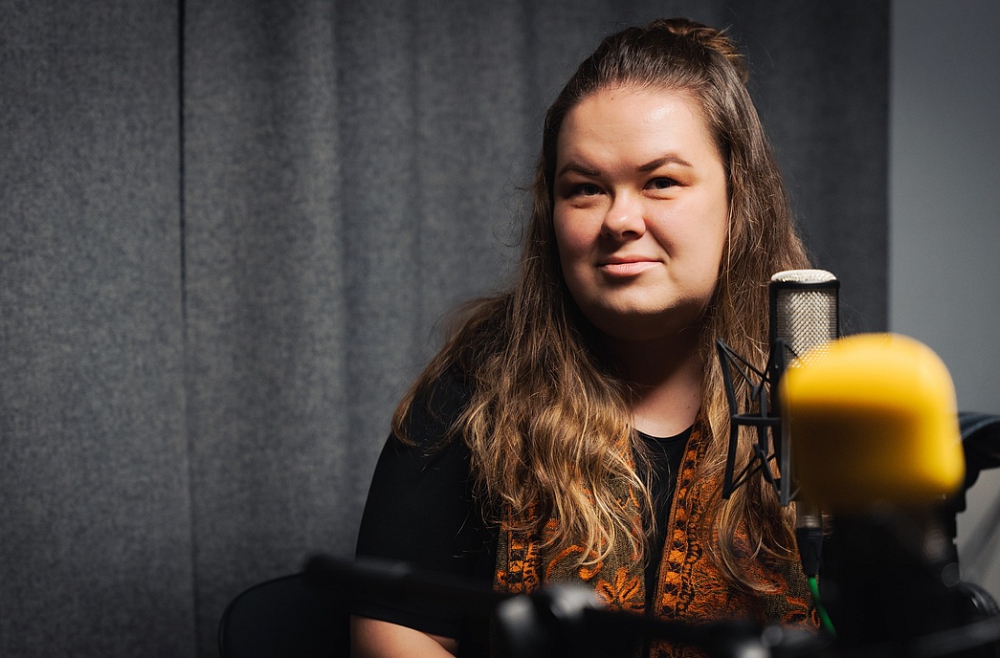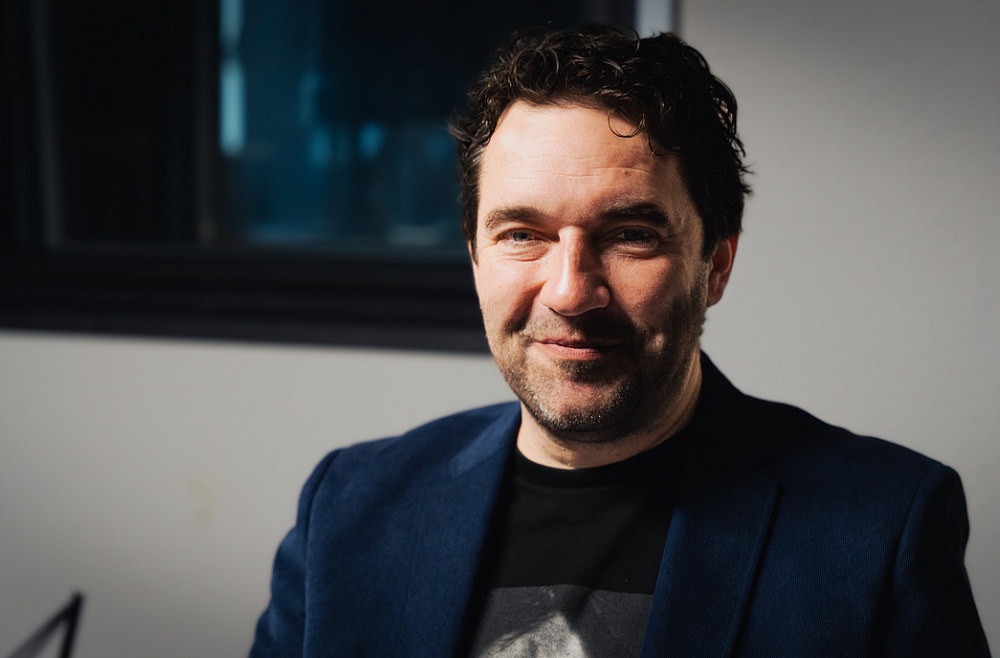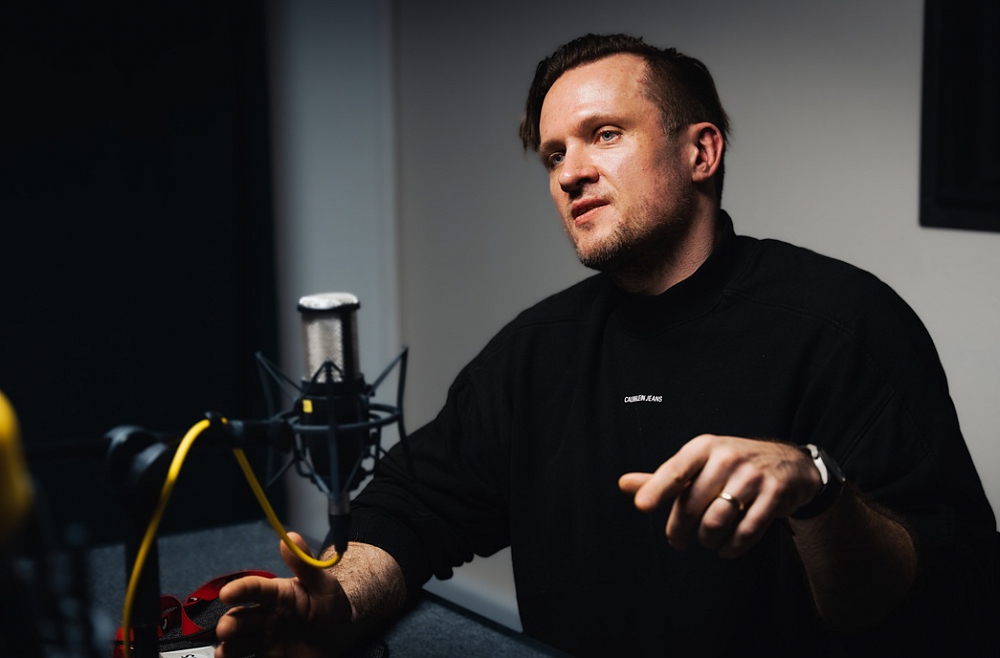What is our jazz environment, what are its disadvantages and advantages, current directions and artists, inclusion in the international scene and future prospects? Aleksandra Line, editor of the electronic jazz magazine JAZZin.lv, music journalist Kaspars Zaviļeiskis and Mareks Ameriks, manager of the record label “Jersika Records” talk about these and other topics.
Anete Ašmane-Vilsone: How would you describe Latvian jazz and our jazz landscape in 2022?
Alexandra line: So were we able to define it? I liked Kaspars Zaviļeiska’s introduction to the album “Jazz in Latvia 2022” and the comparison with mushrooms. What did we manage to cover? Lot of.
Kaspars Zaviļeiskis: Yes, yes, we have both chanterelles and porcini, there are also flycatchers, but I think the scene is progressive. It’s rewarding. I try to go to concerts as much as possible, including “M/Workshop”. When you go there, you get the feeling that it’s something alive – it’s not a dying organism, but one that grows, learns and develops.
I think in the coming years we can talk more about that basket of mushrooms – right now we are still in the process of picking mushrooms.
Mareck America: Looks like a scene. It was the same feeling five years ago when I started my label, because there was a feeling that there was music in the air and there were a lot of musicians doing creative things. Today it has progressed, even very intensively – if we include the “Blues Club”, then we already have three places for this kind of music in Riga. And this is a lot. I am happy for “M/Workshop”, which has already managed to settle down. Last week I played a DJ set and young people danced Herbie Hancock 1976 (Herbie Hancock) record. This is a positive sign, because in reality young people are the ones who drive the music, determine the trends and what “goes to the masses”.
From left: Mareks Ameriks and Kaspars Zaviļeiskis
Photo: Latvian Radio
If one comparison is multiplying, another may be the growth process we are still in. What do you think are the principles that define us as we grow up?
Marek America: The combination is very good and correct: we have both the educational side, which is also developing, and the real environment in which it can happen. One is impossible without the other. I think the ground is ready for us.
There must be more new jazz venues, because if something becomes a trend, then the activity also appears at the bottom.
Do you think jazz could become a trend, something very popular also among young people? In other festivals, we mostly see hip-hop and that genre.
Kaspars Zaviļeiskis: As Marek said, if young people are “attracted” to something, then it can become a trend. A good example is England: suddenly there are full halls and jazz is something new and trendy again. Maybe we also need to hear some of our own jazz – if people from other genres are interested – whether it’s electro or rock or whatever – then it can become a festival worthy event. I believe it can happen, you just have to do it and feel where it is.
Alexandra Line: Jazz was once popular and dance music so we can.
About 100 years ago, I think.
Alexandra Line: Yes, so we could.

Alexandra line
Photo: Latvian Radio
Marek America: This year also at the “Positivus” festival, although the focus was on hip-hop, “Black Midi” and Thundercat also visited. I’m waiting for a rapper who comes from jazz circles to appear in Latvia. Cooperation with someone from the outside is not very good here, it has to come from within. Someone, maybe, in addition to playing the piano or playing another instrument, started rapping and now they express themselves in this way, enter this environment and then connect organically. For example, many students come to the “M/Workshop” sessions, but a random visitor may wander in there and if he sees everything and takes something from it, that’s fine.
Kaspars Zaviļeiskis: In my opinion two bands that could go in the direction of a wider audience are Lupa and S&T Syndicate.
Seeing their latest concerts, there are people who might be sitting with a frown on traditional jazz, but these bands are already creating a party, even if it’s really jazz.
This is probably one of the directions in which we in Latvia can go. I agree about rap – it’s fashionable and you can combine it with jazz very skillfully. There are good examples, someone just needs to start doing it.
Marek America: It’s important to reach your audience, get on their radar. When I run a publishing house, I always think about how it might look in a European context. My goal is to create a concert agency that offers musicians a service – when an album is released, it offers places to go to perform – at least here in the Baltic states, in Poland, in Germany. There are known concert agents who could push us into such a position, and then our musicians would be noticed.
Alexandra line: Genre boundaries are blurring not only in music, but also among listeners.
And within the industry. We have already mentioned these three places in Riga: “M/Darbnīca”, the club “Biedrība” and the newly opened “Blūza nams”. What do you think, is that enough in the context of Riga? Will these places be able to survive in our market situation?
Kaspars Zaviļeiskis: This is already a larger issue affecting the support of cultural venues at the municipal and state levels. It happens across some projects, but maybe we should think about it on a “top shelf”.
We see other alternative cultural venues closing: it’s not just a bar, it’s a cultural space, it’s a stage.
Jazz may be a priority here, because the “high shelves” may understand jazz better than punk rock or techno. I think with some support from the government more places like this could come up, and that would definitely give us an outcome that would appeal to all of us music lovers and jazz fans.

Kaspars Zaviļeiskis
Photo: Latvian Radio
The problem seems to be that we expect all music to be played in regional concert halls and other large institutions, but in fact jazz is one of those genres which, although it appears in such concert halls, not nearly as much jazz offer is played there.
Alexandra line: Fortunately, jazz is also heard in the concert halls: VEF Culture Palace has a “VEF Jazz Club” series, many other concert halls also have separate events, but of course we want more.
Marek America: Behind every place there must be a person who is passionate about it, for whom it is a vocation in life. We ourselves had some not so good examples here in old Riga, which ended rather quickly. Everything seems nice at first, work is invested, everything is even happening, but then it somehow freezes. If people are passionately behind it, then everything will be fine. I really think we have so much good music in Latvia that there could be as many as five publishing houses that would release at least ten albums every year.
It seems you, Marek, “Jersika Records” release a part, but still a large number of musicians release their albums on their own, without record companies and publishers. Is this a trend that should change?
Marek America: I’m not saying anything bad about it, the main factor here is advertising. I feel a musician who has worked should focus on the music, but then there’s the second part of the work to get that music heard. I admit that some musicians don’t have enough time for this, because they have to think about creativity and practice, so the publishing house can be a good friend who helps them achieve it.
Alexandra line: Another reason why jazz musicians in Latvia tend to release their own music is that “Jersika Records” has almost no competition –
it’s not the musicians who get chased by someone and refuse, saying they’ll make it on their own. There are often no other options.
Kaspars Zaviļeiskis: I don’t see a big problem. If you want, you can publish it yourself, or in Latvia, France, Czech Republic, anywhere. If you are interesting as an artist, foreign publishing houses have no problem publishing something. We must start with the basic bonfire: if there is this abundance and everyone is waiting in line for publication, then other local and foreign publishing houses will appear.

Mareck America
Photo: Latvian Radio
Marek America: I can’t agree that we don’t have enough music – there is a lot of music. If I had the ability and resources, we could easily release 20 good albums a year. In “Jersika” I already have a whole list of started and registered projects.
This is how it happens: it’s not a quick item that we buy and it all goes away.
Alexandra line: Jazz itself is not a fast commodity.
Marek America: Sure, and that’s an advantage too, because we work with the art that will be timeless – has no time limit.
Marek America: In Finland, for example, there is a large jazz magazine where they write both about the international scene, inviting various great journalists, and about what is happening in Finland. We also have JAZZin.lv, which could, for example, produce a bigger version once a year. This is a way to expand the audience, because the jazz audience is actually quite conservative: they read books, magazines, buy records.
So should we pay more attention to how we package and display music?
Marek America: Absolutely. Education begins to bear fruit, the jazz department of the Academy of Music has been operating for more than ten years, a record number of students – the wheel has turned. What’s next?
Kaspars Zaviļeiskis: We live in such capitalism – we have to sell all the time. Marek rightly says: we don’t lack good musicians, you can also feel it in pop music, both the bar of quality and the opportunities are growing. But I think many young musicians should become more creatively courageous – they should have the courage to push their limits, this promotes faster development. Young people have to understand that if you’re not brave and different, then you’ll be just like so many others, and in many parts of the world that’s not very attractive.
Alexandra line: It’s one thing to be like this in the product you create, another thing is its packaging.

Annette Ashman-Wilson
Photo: Latvian Radio
How do we currently look on a Baltic or European scale?
Alexandra line: One thing that is missing is state support, the other is more communication, a bolder musical product, more listeners coming to these jazz venues that we could still open.
Kaspars Zaviļeiskis: I wouldn’t call them flaws, because actually these are definitely not the worst periods in the history of Latvian jazz: there is a new movement and a new life. We are not in a bad position, indeed in such a lively one. The more young people want to do it, the livelier the scene will be. He seems to be on a progressive curve right now, and that makes me happy.
Marek America: Jazz is a music where you need to know the basics. If you go through it and then you can add something. By listening to all of this, you can feel: how deep you are, what your foundation is, you know the story, both in music and everything else, and what you bring. This is what I wish for our jazz musicians.


